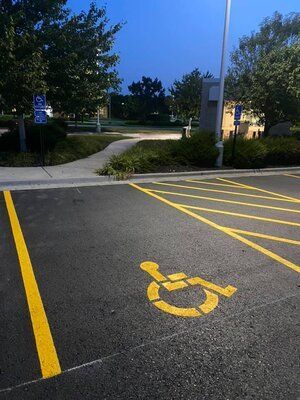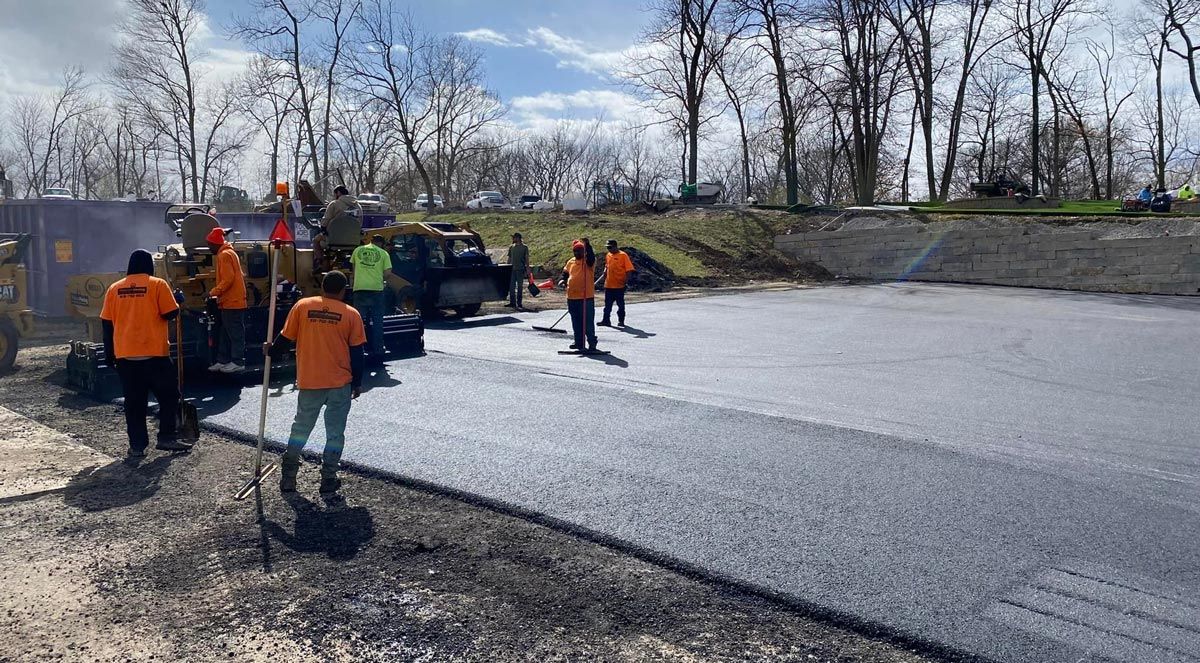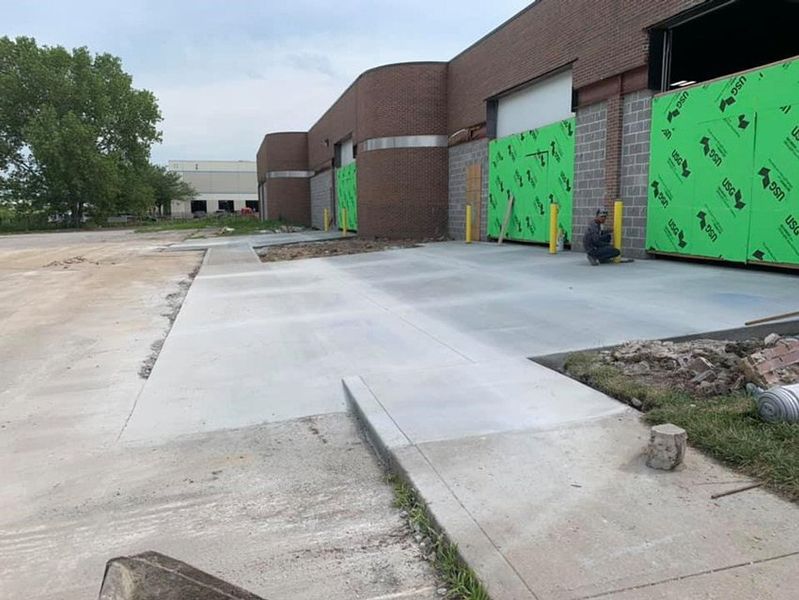Asphalt driveways are a popular choice for homeowners and businesses alike due to their cost-effectiveness, durability, and aesthetic appeal. However, many individuals often wonder, how long does an asphalt driveway last? Understanding the factors that influence the lifespan of an asphalt driveway can help in making informed decisions regarding installation, maintenance, and repair.
In this comprehensive guide, we will explore various facets of asphalt driveways—ranging from installation practices to maintenance tips—and answer common questions associated with their longevity. This article aims to provide you with expert insights into asphalt paving so that you can make educated choices parking lot striping for your property.

How Long Does an Asphalt Driveway Last?
The average lifespan of an asphalt driveway typically ranges between 15 to 30 years, depending on several factors such as climate, usage, and maintenance practices. While some well-maintained driveways may last longer, others may show signs of wear and tear much sooner if not properly cared for.
Factors Influencing Asphalt Driveway Longevity
Quality of Installation- Choosing experienced asphalt paving contractors is crucial. Poor installation can lead to premature deterioration. Ensure proper compaction and thickness during the initial paving process.
- Extreme temperatures—both hot and cold—can affect the flexibility and strength of asphalt. Areas with heavy rainfall or snow may require more frequent maintenance.
- Driveways subjected to heavier traffic will wear out faster than those used primarily for residential purposes. Commercial properties with significant vehicle movement might require different paving solutions.
- Regular inspection and timely repairs (like crack sealing) extend the life of your driveway. Sealcoating every few years protects against UV rays, moisture, and chemical spills.
- Properly preparing the subgrade is essential to support the asphalt layer above it. Compacted gravel or crushed stone should be used as a base layer.
- Proper drainage prevents water pooling which can cause cracking or sinking. Implementing drainage systems or ensuring proper grading can mitigate these issues.
Understanding Asphalt Paving Services
Types of Asphalt Paving Services Available
- Residential Asphalt Paving Services: Focused on home driveways, sidewalks, and patios. Commercial Asphalt Paving Services: Designed for businesses requiring parking lots or larger pavement areas. Parking Lot Paving: Specialized services tailored for commercial zones needing large-scale paving solutions.
Choosing the Right Asphalt Companies
When selecting among various asphalt companies, consider their reputation, warranty offerings, and past projects. A reliable contractor should provide clear communication about costs involved—including asphalt paving cost per square foot—and expected timelines for completion.
The Cost of Installing an Asphalt Driveway
Asphalt Driveway Cost Breakdown
| Item | Cost Range ($) | |----------------------------------------|----------------| | Material (Hot Mix Asphalt) | 2-4 per sq ft | | Labor for Installation | 1-3 per sq ft | | Sealcoating (Initial & Maintenance) | 0.10-0.25 per sq ft | | Repairs (Crack Sealing/Patching) | Varies |
The overall installation cost may vary based on geographic location and specific project requirements. Utilize an asphalt driveway cost calculator to estimate expenses accurately before beginning your project.
DIY vs Professional Installation
While DIY installation may save money upfront, professional installation ensures better quality control and longevity. Mistakes in the laying process could lead to costly repairs down the line; hence hiring experienced contractors is often advisable.
Asphalt Driveway Installation Process
Step-by-Step Guide to Installing an Asphalt Driveway
Site Preparation
- Clear debris from the area where you want your driveway. Excavate existing materials if necessary.
Base Layer Application
- Lay down a compacted base using crushed stone or gravel. Ensure proper grading for drainage purposes.
Asphalt Layer Application
- Hot mix asphalt is laid down using specialized equipment. The thickness should generally be around 2-3 inches for standard residential driveways.
Compaction
- Use a roller to compact the asphalt layer thoroughly. Allow it time to cool before driving on it—typically around 24 hours.
Sealcoating
- Apply sealcoat after around six months to protect against elements.
Final Inspection
- Inspect for any imperfections that need addressing before finalizing the project.
Maintenance Tips: Extending Your Asphalt Driveway's Lifespan
Regular Inspections
Conduct regular inspections at least once a year:
- Look for cracks or potholes that need sealing or patching.
Sealcoating
Regular sealcoating is essential:
- It acts as a protective barrier against weather damage and oil spills.
Frequency: Every 2-3 years depending on traffic levels.
Crack Filling
Addressing small cracks promptly prevents them from expanding:
- Use hot rubberized crack filler for best results.
Common Problems with Asphalt Driveways
Identifying Issues Early On
Cracks- Commonly caused by temperature fluctuations or heavy loads.
- Can indicate poor quality material; requires immediate attention.
- Result from water infiltration beneath the surface; need prompt repair.
FAQs: Your Questions Answered
FAQ 1: How often should I sealcoat my asphalt driveway?
Sealcoating should typically be done every two to three years depending on traffic conditions and weather exposure.
FAQ 2: What causes alligator cracking in asphalt?
Alligator cracking usually indicates underlying structural issues or extreme temperature fluctuations affecting the pavement’s integrity.

FAQ 3: Can I install an asphalt driveway myself?
While DIY is possible, hiring professionals ensures better quality assurance and potentially saves you money in future repairs.
FAQ 4: What are common methods for repairing asphalt driveways?
Common repair methods include crack sealing, patching potholes with new hot mix asphalt, and resurfacing damaged areas with fresh material.
FAQ 5: Is it cheaper to pave a driveway with concrete rather than asphalt?
Generally speaking, concrete can be more expensive upfront than asphalt but may have a longer lifespan when properly maintained.
FAQ 6: How do drainage issues affect my driveway's lifespan?
Poor drainage leads to water pooling which can cause cracks and other forms of deterioration—thus impacting its overall lifespan significantly.
Conclusion
Understanding how long does an asphalt driveway last? Factors to consider involves more than just choosing quality materials; it encompasses proper installation practices, regular maintenance routines like sealcoating and crack filling, as well as being aware of environmental impacts like weather conditions and traffic loads.
Investing time into regular upkeep can greatly extend your driveway’s life expectancy while preserving its appearance—a win-win scenario! Whether you're looking at residential options or commercial parking lot paving projects, seeking professional advice from trusted local contractors will ensure your investment stands the test of time while adding value to your property.
In summary, whether you're installing a new driveway or maintaining an existing one, knowledge about these various aspects will enable you to make informed decisions that enhance both functionality and aesthetics over time.
For anyone wondering how long does an asphalt driveway last? The answer lies in effectively managing factors like quality materials used during application alongside diligent care throughout its lifetime.
Feel free to reach out if you have additional questions about specific topics related to asphalt driveways!
